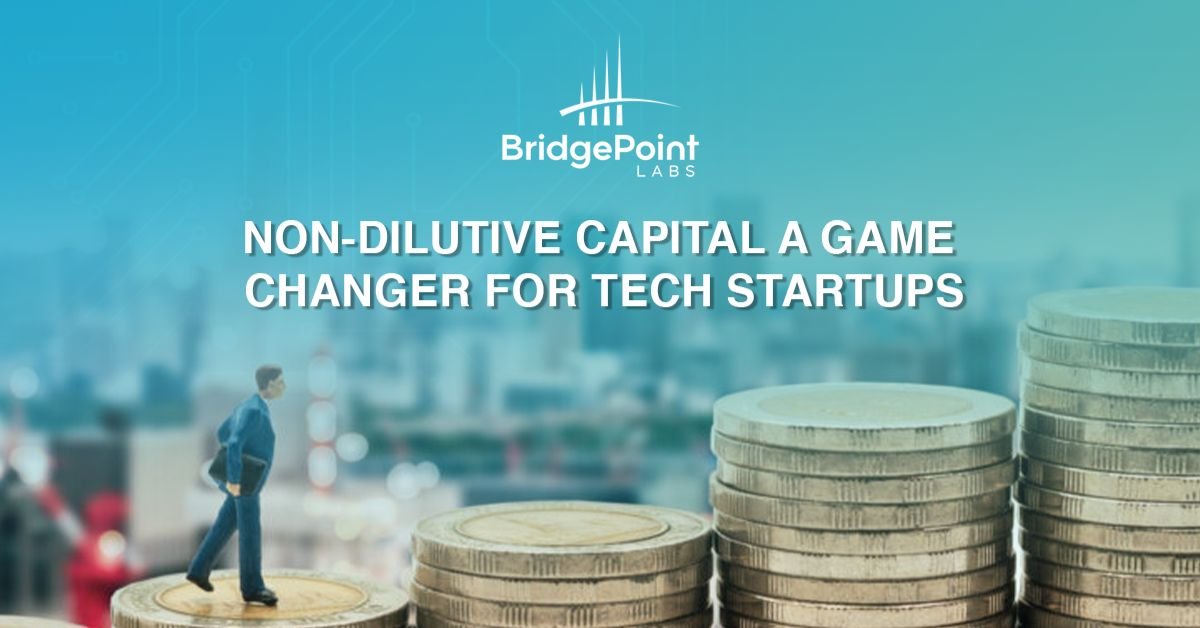In 2025, many early-stage technology startups are facing a difficult funding climate. Venture capital has become more selective, equity deals are slower to close, and valuations are under pressure. But a powerful alternative source of funding is gaining momentum: non-dilutive capital.
Whether it comes from government grants, innovation programs, or philanthropic foundations, non-dilutive capital allows startups to fund research, development, and early deployment without giving up ownership. For deep tech founders—especially in AI, CleanTech, biotech, semiconductors, and dual-use technologies—this is more than a lifeline. It’s a strategic advantage.
What Is Non-Dilutive Capital?
Non-dilutive capital refers to funding sources that do not require startups to give up equity. These include:
- Government Grants: SBIR/STTR programs, Department of Energy (ARPA-E), NSF TIP, DoD, DARPA, NIH, and others
- R&D Contracts: Cooperative agreements with national labs, defense innovation units, and state energy offices
- Philanthropic Funding: From mission-driven organizations like the Gates Foundation, Schmidt Futures, or the Sloan Foundation
- Prizes and Innovation Challenges: Sponsored by federal agencies, NGOs, or corporate partners to accelerate key technologies
These funds often focus on technical merit, mission alignment, and broader impact, not just financial return.

Why This Matters in 2025
Several forces are pushing non-dilutive capital to the forefront:
- Massive Government Investment: U.S. federal agencies are deploying record-breaking funding into strategic tech areas—especially through the Inflation Reduction Act, CHIPS Act, and Bipartisan Infrastructure Law.
- Venture Pullback from Deep Tech: Traditional VCs are prioritizing safer, later-stage investments. For capital-intensive fields like quantum, climate, or advanced manufacturing, grants help bridge the “valley of death.”
- Founders Want to Retain Control: Non-dilutive capital allows founders to pursue long-term impact without pressure to deliver short-term exits.
What Makes a Startup Fundable Without Equity
To win non-dilutive capital, startups need to demonstrate:
- Clear Technical Innovation: Funders expect a novel, well-scoped technical challenge with measurable progress milestones.
- Public Benefit and Alignment with National Priorities: Whether it’s climate resilience, health equity, supply chain security, or workforce development, your work should support a broader societal goal.
- Strong Team and Execution Plan: Review panels look for capable, experienced teams with the ability to meet deliverables—especially in R&D-heavy proposals.
- A Path to Impact: Show how your innovation transitions from lab to market, and who benefits along the way.
Common Pitfalls and How to Avoid Them
Many startups miss out on non-dilutive capital due to:
- Weak Proposal Framing: Writing a technical paper isn’t enough—you need a compelling narrative, alignment with agency goals, and clarity about outcomes.
- Lack of Strategic Roadmapping: Funders want to see how your Phase I or pilot project leads to scalable deployment or economic development.
- Underestimating Administrative Demands: Grants come with reporting and compliance requirements. Having experienced partners can make the difference between success and burnout.

How BridgePoint Labs Helps Startups Win
At BridgePoint Labs, we help technology startups and research-driven companies:
- Identify the most relevant grant and non-dilutive opportunities (federal, state, foundation, and international)
- Develop competitive SBIR/STTR proposals with technical roadmaps and commercial alignment
- Build supporting partnerships with universities, testbeds, and labs
- Track multi-phase funding pipelines and post-award compliance
- Align non-dilutive strategy with long-term capital planning (equity, debt, or revenue-based)
We don’t just write proposals—we help build enduring innovation platforms.
Examples of Impact
- A CleanTech startup in grid optimization received $1.2M in DOE SBIR funding to pilot its AI-driven software, accelerating deployment with utilities
- A synthetic biology spinout secured NIH Phase I/II grants to support R&D while negotiating favorable equity terms with future investors
- A university-affiliated startup in semiconductor packaging received NSF TIP funding for prototyping and industrial scale-up
Key Takeaways
- Non-dilutive capital isn’t charity—it’s strategic funding to de-risk innovation
- Federal agencies and foundations are actively seeking breakthrough technologies
- Startups that align R&D with public missions gain more than funding—they gain credibility and momentum
- You don’t have to go it alone—partnering with experts can multiply your chances of success
Let’s Fund What Matters—Without Losing Equity
BridgePoint Labs helps innovators leverage non-dilutive capital to scale deep tech. Whether you’re applying for your first SBIR or building a grant-backed product pipeline, we’ll help you compete and win.



